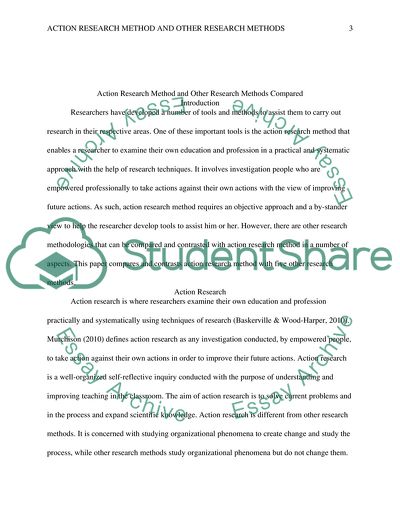Cite this document
(Action Research Method and Other Research Methods Compared Coursework Example | Topics and Well Written Essays - 2000 words, n.d.)
Action Research Method and Other Research Methods Compared Coursework Example | Topics and Well Written Essays - 2000 words. https://studentshare.org/education/1787353-compare-and-contrast-action-research-method-with-other-5-research-methods
Action Research Method and Other Research Methods Compared Coursework Example | Topics and Well Written Essays - 2000 words. https://studentshare.org/education/1787353-compare-and-contrast-action-research-method-with-other-5-research-methods
(Action Research Method and Other Research Methods Compared Coursework Example | Topics and Well Written Essays - 2000 Words)
Action Research Method and Other Research Methods Compared Coursework Example | Topics and Well Written Essays - 2000 Words. https://studentshare.org/education/1787353-compare-and-contrast-action-research-method-with-other-5-research-methods.
Action Research Method and Other Research Methods Compared Coursework Example | Topics and Well Written Essays - 2000 Words. https://studentshare.org/education/1787353-compare-and-contrast-action-research-method-with-other-5-research-methods.
“Action Research Method and Other Research Methods Compared Coursework Example | Topics and Well Written Essays - 2000 Words”. https://studentshare.org/education/1787353-compare-and-contrast-action-research-method-with-other-5-research-methods.


